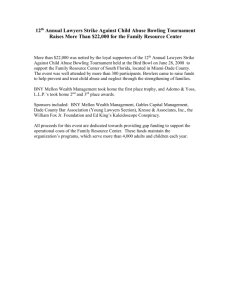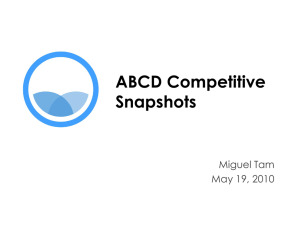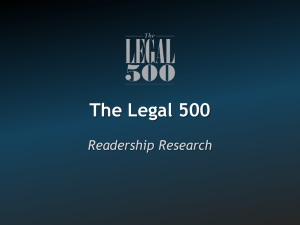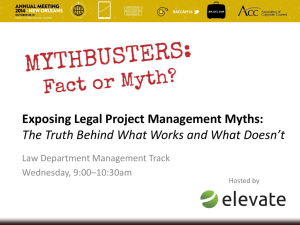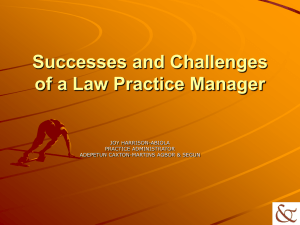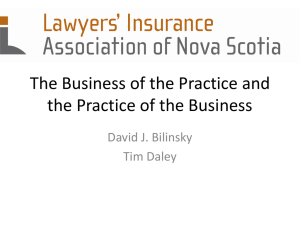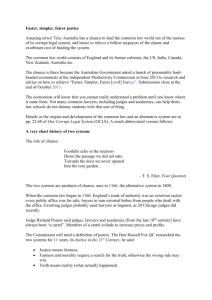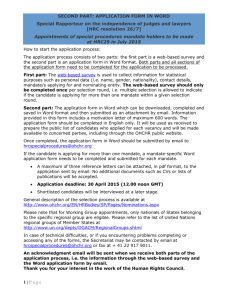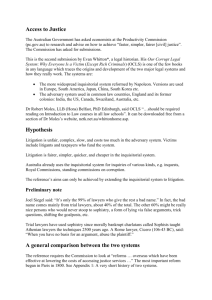ICCC Cultural Practices Information sheet
advertisement
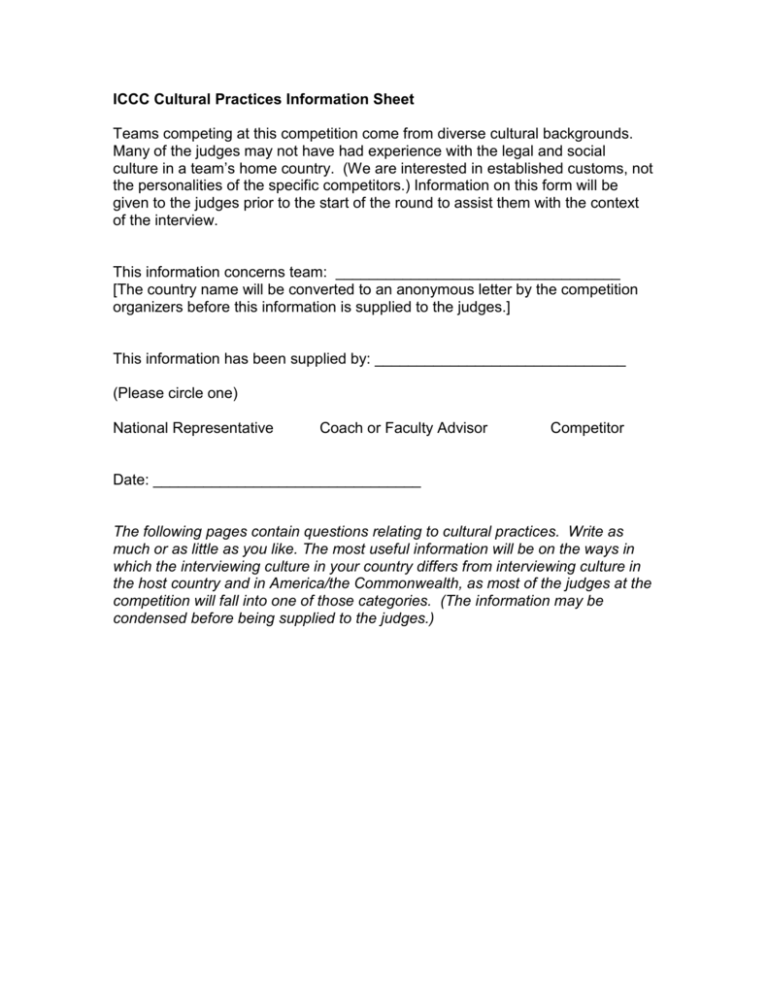
ICCC Cultural Practices Information Sheet Teams competing at this competition come from diverse cultural backgrounds. Many of the judges may not have had experience with the legal and social culture in a team’s home country. (We are interested in established customs, not the personalities of the specific competitors.) Information on this form will be given to the judges prior to the start of the round to assist them with the context of the interview. This information concerns team: __________________________________ [The country name will be converted to an anonymous letter by the competition organizers before this information is supplied to the judges.] This information has been supplied by: ______________________________ (Please circle one) National Representative Coach or Faculty Advisor Competitor Date: ________________________________ The following pages contain questions relating to cultural practices. Write as much or as little as you like. The most useful information will be on the ways in which the interviewing culture in your country differs from interviewing culture in the host country and in America/the Commonwealth, as most of the judges at the competition will fall into one of those categories. (The information may be condensed before being supplied to the judges.) Introductions How would lawyers address the client? Are first names appropriate? How would lawyers refer to themselves? (Eg first name, last name and/or firm name (and in what order)? Would there be handshakes or kisses or exchanges of business cards? Is humour or small talk appropriate as an “icebreaker” or would the lawyers get straight to the client’s concerns? How formal is the interaction between lawyer and client in your country, and how would this be manifested? How would lawyers be dressed? What would be typical seating arrangements? How much personal space would there be between lawyers and client? Communicating Would eye contact always be made with the client? Are there any vocal mannerisms (eg loud vs soft voice, fast vs slow speech) about which the judges should know? Are there any gestures that are likely to be misunderstood (eg horizontal head shaking), or words given a different meaning (eg “yes” meaning I will try, not that I promise to do so)? How direct would lawyers be with the client (eg “it would be very helpful if we could see the contract” vs “we need to see the contract”)? Would the lawyers be concerned with helping the client save face? If so, how would this be accomplished (eg indirect approach to subjects, or careful wording of questions)? How would note taking be handled? Role of the lawyer How is the role of the lawyer perceived in your country? In a situation with two lawyers, what would be their relationship to each other? Would the lawyers be self-assured or self-deprecating (in the interview, or in the post-interview reflection)? How would lawyers deal with challenging situations, eg where they suspect the client of lying, or where the client has requested that the lawyers do something that would be unethical? Politeness Are any behaviours considered to be rude in one country considered to be acceptable in your country, or vice versa? Eg blowing nose, throat clearing? How is interrupting considered? (Eg never done, or try to avoid, or not particularly considered to be rude) Are certain terms (eg racial slang, referring to adults as “boys” or “girls”) or subjects best avoided unless directly relevant (eg gender, race, sexual preference, politics, religion, finances)? If these subjects must be discussed, what form would that take? Dealing with emotional clients How would the lawyers respond to the client showing mild or strong emotion, or even breaking down? Would touching ever be appropriate? Would emotion be focused upon by the lawyers, or downplayed? Would the lawyers discourage the client from showing emotion? In what situations (if ever) would the lawyers display emotion? Decision-making Are there others who should be consulted (eg extended family, workmates)? Would the lawyers ask if they were being retained, or assume it? How would fees be discussed? Lawyers’ behaviour is shaped by their country’s rules of professional conduct. Are there any rules that could influence a client interview, which you would like to bring to the attention of the judges? Is there anything else that you would like the judges to know about legal and social culture in your home country?
